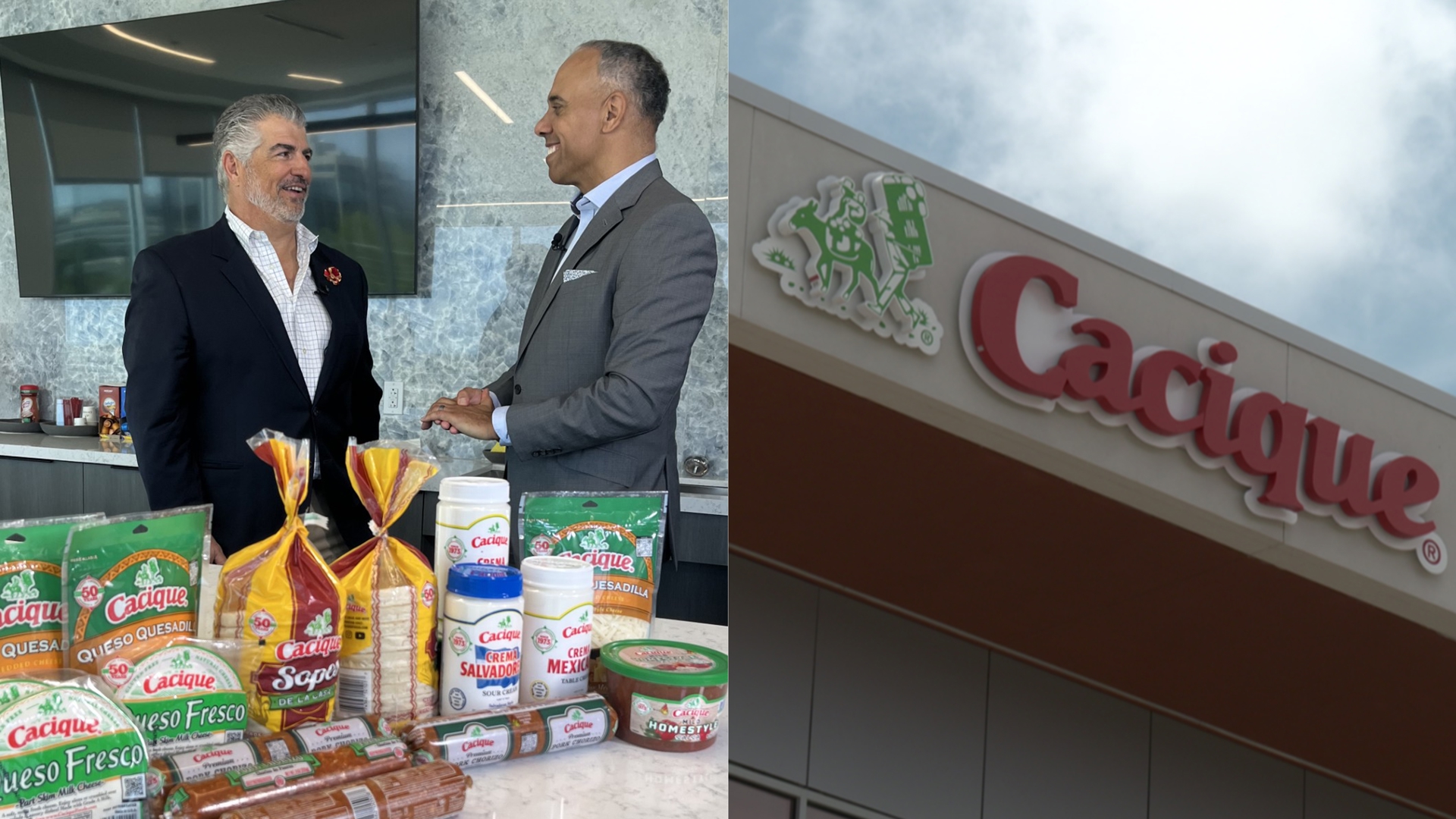DALLAS — Cacique Foods was about as California as it comes, having spent nearly 50 years nestled in the foothills of the San Gabriel Mountains. But as the company celebrates the one-year anniversary of its move to North Texas, CEO Gil de Cardenas has no second thoughts about uprooting the family business.
“It’s hard to describe how special this place is,” he says from Cacique's new headquarters in Irving.
De Cardenas thinks about his father selling cheese from the back of a car, as he marvels at the new dairy processing plant in Amarillo. He says Cacique spent nearly $90 million to build a facility with “seven miles of stainless-steel tubing, and 1400 smart valves that open and close within half a second.”
Watch the full interview with Gil de Cardenas here:
And his executive team is guiding the company’s growth from a new headquarters, in the Las Colinas area of Irving.
“The business will double in five years, that’s the goal," de Cardenas says. "And then double again in 8 to 9 years.”
The “business” is Mexican-style cheeses, cremas, salsas and chorizo. A company that started with one product now makes 75. But to understand why the move to Texas made sense, you need to see where it started, in 1960s Cuba.
It was the height of Fidel Castro’s power, and Gilbert Sr. and Jennie de Cardenas were barely getting by.
“My dad was a cheesemaker in Cuba," de Cardenas says. "He had a little cheese plant that he operated with my grandfather, making queso fresco.”
De Cardenas remembers his mother making dinner, with only enough food for her children.
“My sisters and I would eat," he says. "And she would sit with us, but she wouldn’t eat. And…” his voice trails off as he chokes up, unable to finish the thought.

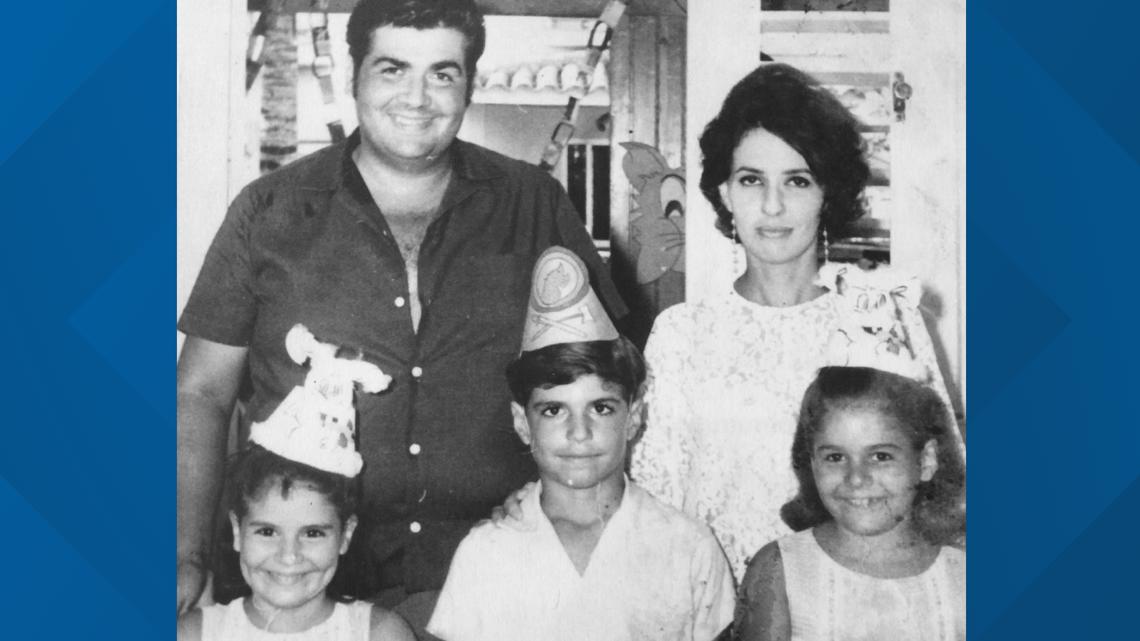
De Cardenas says the Communist dogma was instilled at an early age.
“Where I went to school, the soldiers would come in," he says, "and they’d say, ‘Today we’re going to prove to you there’s no God.’ And the way they’d do it is, ‘Bow your heads and pray to God to give you candy. Now lift your heads. Does anyone have candy?’ Well of course not. Then they’d go around again and say, ‘Now ask the state for a piece of candy.’”
He shows us with his hands how the soldiers passed out pieces to each student, one by one.
“You’re 8 years old, 7 years old, the indoctrination has started," de Cardenas says.
It might’ve taken hold, had the family not left for Miami in 1971. After years of rationing and empty shelves, Gil de Cardenas walked into an American grocery store for the first time.
“And I see …food. As much food as you could ever want," he says. "And to this day, it made a huge impact on me.”
And his father saw an opportunity. Gilbert Sr. raised $1500 and bought a derelict food plant, then spent six months fixing it up himself.
“He started making about 80 pounds of cheese a day and loaded the car with Styrofoam coolers," he says. "He would go door to door and sell a pound at a time. And hope that next week it was two.”
When he finished, Gilbert Sr. would go back to clean the factory for the next day. His son gets choked up again, thinking of his dad’s drive.
“I never heard him complain," de Cardenas says. "We’d only see him on weekends, but he did it happily.”

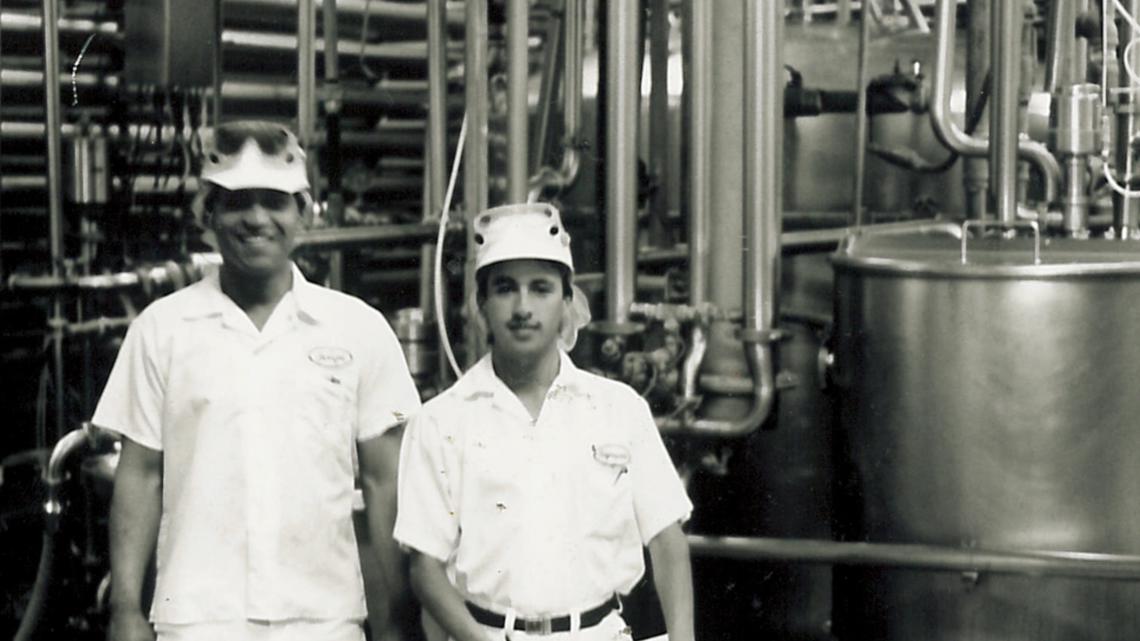
Over the years, Cacique’s products became staples in Mexican bodegas and small markets. The company pioneered vacuum seal packages, allowing its products to stay fresh weeks longer than competitors. But when Cacique tried to expand into the major grocery chains, de Cardenas faced tremendous pushback.
“They would look at us and say, ‘You’re just a brand for Hispanics. I’ve got all these stores, and I don’t have any Hispanic customers, so I don’t need you,’” he says.
Armed with an MBA from the University of Chicago, de Cardenas poured money into research, digging into consumers’ shopping habits.
“And we went through this process of understanding just how much bigger the market could be," he says. "We wanted to know about people who ate Mexican food, but not our products, and consumers who weren’t Hispanic. We were just marketing to 1st-generation Hispanics. And that study changed our business.”

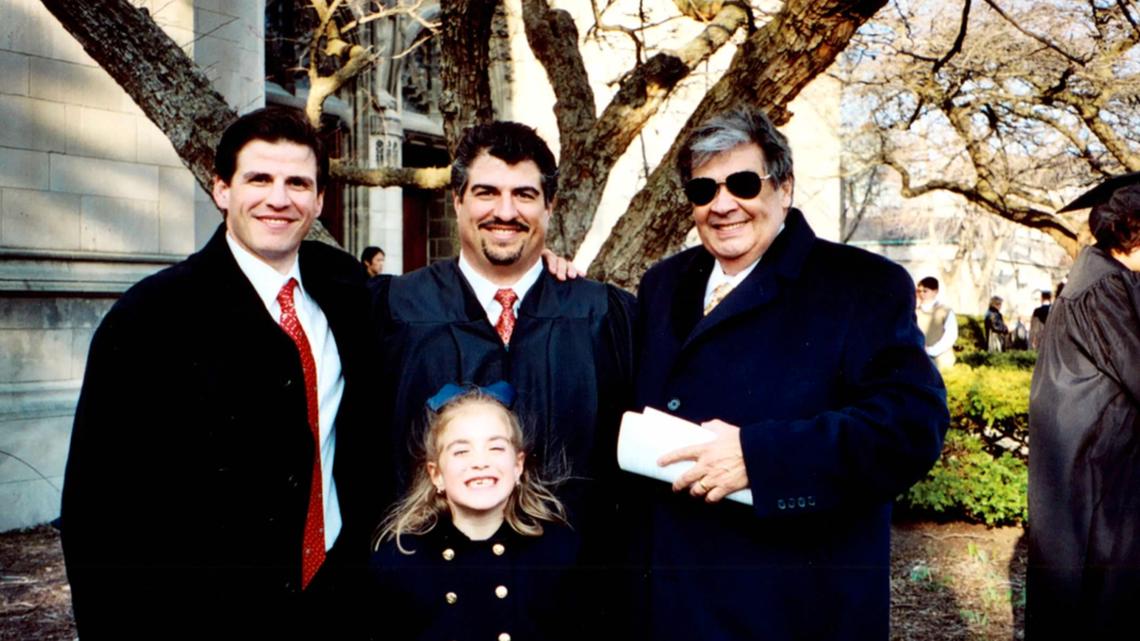
Armed with all that new research, he went back to the big grocers, to fight for space on their shelves.
“You have to show them the data, and even then, it’s like ‘Uh, let’s try it. A few stores.’ And then a few more, and a few more, and before you know it you’re in the entire chain," he says.
To the point where now, you can find Cacique products in 8 out of every 10 grocery stores in the country.
The American family was expanding its palette to cook a wider variety of food, and what was once considered “ethnic” became an American staple.
“Think about salsa outselling ketchup, tortillas outselling white bread," he says. "This country’s a melting pot of cultures, and now it’s become a melting pot of food.”

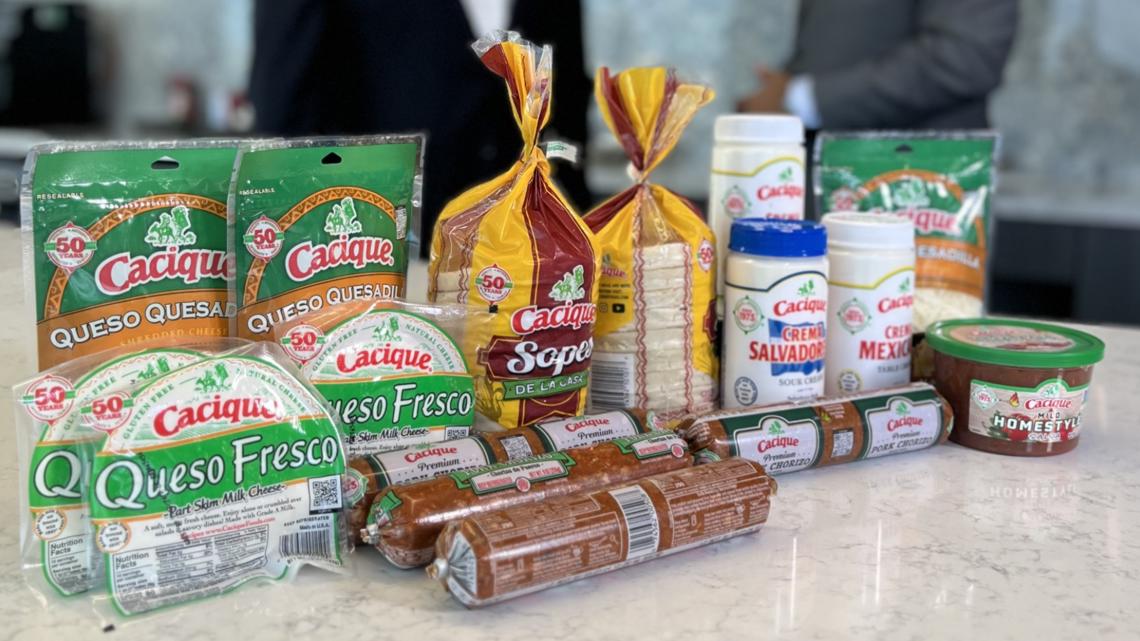
Cacique conquered the west coast. But about six years ago, De Cardenas started thinking California was constraining the company’s growth. They were getting interest from grocery chains as far away as Florida, New York and Michigan.
“All the states where we’d have a difficult time shipping to, because of fuel and freight costs," he says. "So we decided that we needed to get closer to the market.”
Cacique hired a third-party group, which identified 118 sites that met its criteria. Those were spread out across Texas and its 7 competitors: New Mexico, Oklahoma, Colorado, Idaho, Kentucky, New York and Georgia.
“Over a six-month period, we took 118 and made it 17, and those 17 we toured," de Cardenas says. "We went to every single city, spoke with every mayor, every single development group. 17 becomes four. Four becomes one.”
And that one was Amarillo.
“Every city we looked at had something that wasn’t right," de Cardenas says. "And when we got to Amarillo, we felt something different. It has the third-largest milkshed in the country. So we have milk available to us, an hour away, as much as we need. It had the labor force, the community. It’s off I-40, which is now the main thoroughfare east and west. It had all the pieces.”
To help finance the expansion, De Cardenas sold a minority stake in the family business to Baupost Group, a hedge fund based in Boston. Cacique spent $88 million to build and equip the new dairy processing plant, which spans 55 acres in the Amarillo Economic Development Corporation’s South Georgia Business Park.
“It’s been everything and then some," he says. "We’re really happy there.”
Having settled on the Panhandle, de Cardenas turned his attention to finding a new headquarters. And North Texas almost immediately stood out.
“It’s centralized, it’s a much better location," he says.
He says there was no other location that offered two major airports and convenient flights anywhere in the country. You can literally see DFW International Airport from the new offices in Irving.
“Going to see a large customer that’s in Cincinnati, from California that’s a two to three-day trip," he says. "One day there, the meetings, one day back. Out of DFW, it’s all same day.”
De Cardenas says they offered every Cacique employee a job in Texas.
“We’d pay for their move, we had a company set up to help them relocate," he says. "But at the end of the day not many did, because of the ties and roots. Their parents are there, their kids are there, they couldn’t make that move.”
Saying goodbye to employees who’d been with the company for decades?
“That was a very, very tough …tough time," de Cardenas says.
But over the past year, that feeling has been somewhat offset by what other his employees gained.
“We had about 30 people that came [to Texas.] For the first time in their family’s history, they bought a house. None of them had a home in California, they all rented," he says.
De Cardenas says for some, the price difference between Southern California and the Texas Panhandle has changed the entire family dynamic.
“Many of them have gone to a one-income family, instead of two," de Cardenas says. "It just dawned on me like, ‘Oh my gosh, you can do that here.' And they have.’”
He was also caught off guard by how friendly everyone has been. There are always unforeseen problems with building a hi-tech plant of this size. But de Cardenas says people in the Amarillo community kept approaching his team.
“It was always ‘Hey I heard you got this issue, can I help you?’ That neighborly approach," he says. "And they’re not looking to get paid, they were just looking for ways to help us. That was very touching.”
Cacique continues to spend money on marketing to non-Spanish speaking shoppers.
“We feel we have to tell consumers what the product is," he says. "What is queso fresco? A lot of people still don’t know. So we have to invest in the category to build the brand, not the other way around.”
But like the vast open spaces Texas is known for, de Cardenas sees endless possibilities ahead.
"Mexican food will continue to be part of the Americana that it is today," he says. "And we haven’t started talking about overseas. Other markets. Other places that are not grocery stores."
"We just have to stay focused on who we are," he says, pausing to look up and raise his hands, " and leave the rest to Him.”

